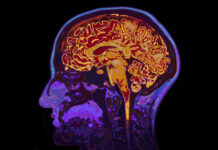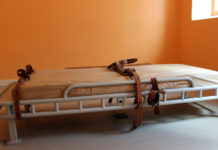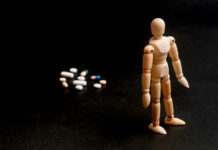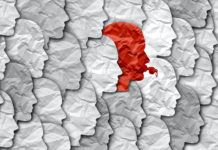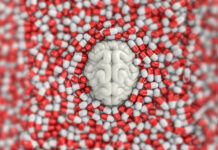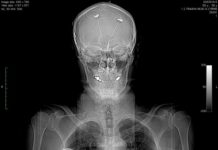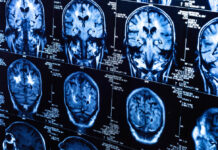The Door to a Revolution in Psychiatry Cracks Open
The Ministry of Health in Norway has ordered its four regional health authorities to offer medicine-free treatment in psychiatric hospitals. A six-bed ward in Tromso, which is in the far north of Norway, is now providing such care.
Psychiatry, Fraud, and the Case for a Class-Action Lawsuit
For decades, psychiatry committed medical fraud when it told the public that antidepressants fixed a chemical imbalance in the brain.
Muzzled by Psychiatry in a Time of Crisis
The American Psychiatric Association and its former president, Jeffrey Lieberman, have used the Goldwater Rule to try to silence Yale psychiatrist Bandy Lee and colleagues who warned, in a collection of essays, about why President Trump is "dangerous." Why would a guild choose to do this?
Lancet Psychiatry Needs to Retract the ADHD-Enigma Study
Lancet Psychiatry, a UK-based medical journal, recently published a study that concluded brain scans showed that individuals diagnosed with ADHD had smaller brains. That conclusion is belied by the study data. The journal needs to retract this study.
UPDATE: Lancet Psychiatry (online) has published letters critical of the study, and the authors' response, and a correction.
Suicide Hotlines Bill Themselves as Confidential—Even as Some Trace Your Call
Every year suicide hotline centers covertly trace tens of thousands of confidential calls, and police come to homes, schools, and workplaces to forcibly take callers to psychiatric hospitals.
MIA Survey: Ex-patients Tell of Force, Trauma and Sexual Abuse in America’s Mental Hospitals
In a MIA survey of people who had been patients in mental hospitals, nearly 500 respondents told of an experience that was often traumatic, and frequently characterized by a violation of their legal rights, forced treatment with drugs, and physical or sexual abuse. Only 17% said they were “satisfied” with the “quality of the psychiatric treatment” they received.
Medication-Free Treatment in Norway: A Private Hospital Takes Center Stage
At the Hurdalsjøen Recovery Center in Norway, patients with a long history of psychiatric hospitalizations are tapering from their medications and, in a therapeutic environment that emphasizes a good diet, exercise, and asking patients "what do they want in life," are leaving their old lives as chronic patients behind.
Screening + Drug Treatment = Increase in Veteran Suicides
For the past 15 years, the VA's suicide prevention efforts have focused on getting veterans screened and treated for psychiatric disorders, with antidepressants a first-line therapy. This effort has caused veteran suicide rates to steadily rise.
Suicide in the Age of Prozac
During the past twenty years, the American Foundation for Suicide Prevention and American psychiatry have adopted a "medicalized" approach to preventing suicide, claiming that antidepressants are protective against suicide. Yet, the suicide rate in the United States has increased 30% since 2000, a time of rising usage of antidepressants. A review of studies of the effects of mental health treatment and antidepressants on suicide reveals why this medicalized approach has not only failed, but pushed suicide rates higher.
The False Memory Syndrome at 30: How Flawed Science Turned into Conventional Wisdom ...
Soon after states finally began providing adults who remembered childhood abuse with the legal standing to sue, the FMSF began waging a PR campaign to discredit their memories—in both courtrooms and in the public mind.
An FDA Whistleblower’s Documents: Commerce, Corruption, and Death
In 2008, a reviewer of psychiatric drugs at the FDA, Ron Kavanagh, complained to Congress that the FDA was approving a new antipsychotic that was ineffective and yet had adverse effects that increased the risk of death. Twelve years later, a review of the whistleblower documents reveal an FDA approval process that can lead to the marketing of drugs sure to harm public health.
Depression: Psychiatry’s Discredited Theories and Drugs Versus a Sane Model and Approach
Psychiatry’s depression outcomes are poor because its bio-chemical-electrical treatments are based on a depression model that science has flushed down the toilet.
Therapy by App: A Clinical Psychologist Tries BetterHelp
Revealing concerns about BetterHelp’s ability to provide quality, secure treatment—and the unresolved tensions in the science of psychotherapy that services like BetterHelp exploit.
Adverse Effects: The Perils of Deep Brain Stimulation for Depression
Hundreds of people have been given remote control deep brain stimulation implants for psychiatric disorders such as depression, OCD and Tourette’s. Yet DBS specialists still have no clue about its mechanisms of action and research suggests its hefty health and safety risks far outweigh benefits.
Roll-out of 988 Threatens Anonymity of Crisis Hotlines
Even after their own advisory committee criticized call tracing, leaders of the National Suicide Prevention Lifeline have been lobbying government for cutting-edge mass surveillance and tracking technology. Privacy experts are raising concerns.
Anatomy of an Industry: Commerce, Payments to Psychiatrists and Betrayal of the Public Good
Pharmaceutical companies paid psychiatrists $340 million from 2014 through 2020, corrupting every aspect of the testing and marketing of new psychiatric drugs.
Adverse Childhood Experiences: When Will the Lessons of the ACE Study Inform Societal Care?
The ACE study tells of how adverse childhood experiences increase the risk of psychological and physical problems in adulthood. When will we start incorporating these findings into public health policy and medical care?
Crisis on Campus: Mental Health Counselors Are Feeling the Crush
A dramatic rise in demand for college mental health services has led to counselors feeling burned out. Counseling center directors are looking for solutions.
The Whistleblower and Penn: A Final Accounting of Study 352
After 18 years, the full story of the scientific corruption in a study of paroxetine for bipolar disorder, and the psychiatrist who blew the whistle.
Exploring Psychiatry’s “Black Hole”: The International Institute on Psychiatric Drug Withdrawal
When Carina Håkansson sent out an invitation for a symposium on "Pharmaceuticals: Risks and Alternatives," some of the world's top scientists, along with experts-by-experience, came from 13 countries to explore better ways to respond to people in crisis.
Twenty Years After Kendra’s Law: The Case Against AOT
The proponents of compulsory outpatient treatment claim that it leads to better outcomes for the recipients, and protects society from violent acts by the "seriously mentally ill." Those claims are belied by history, science, and a critical review of the relevant research.
Soteria Israel: A Vision from the Past is a Blueprint for the Future
In Israel, there is a budding Soteria movement that foretells of a possible paradigm shift in care. The thought is that such care may become a first-line treatment for newly psychotic patients.
A Neuroscientist Evaluates the Standard Biological Model of Depression
Current evidence does not support a biological hypothesis of depression. It is far better predicted by levels of childhood trauma, life stress, and lack of social supports.
“Confidential” 988 Conversation Records Shared with Corporations
Recordings of 988 callers’ voice, text, and chat conversations are being shared with researchers, AI developers, and corporations without consent.
Medicating Preschoolers for ADHD: How “Evidence-Based” Psychiatry Has Led to a Tragic End
The prescribing of stimulants to preschoolers diagnosed with ADHD is on the rise, which is said to be an "evidence-based" practice. A review of that "evidence base" reveals that claims that ADHD is characterized by genetic and brain abnormalities are belied by the data, and that the NIMH trial of methylphenidate in this age group told of long-term harm.




